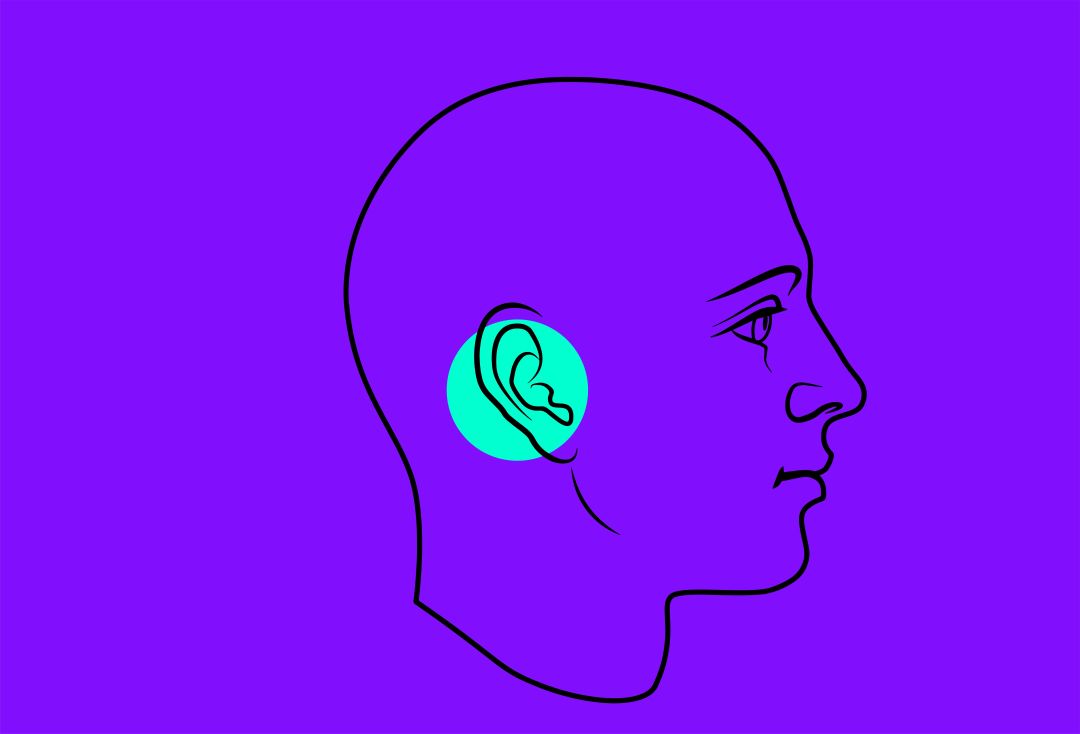What are the Signs of Hearing Loss?

Image: Kari Perrin
Hearing loss doesn't just affect the elderly. Go to one too many concerts, wear ear buds too often or develop swimmer's ear from your summer pool parties and you can experience hearing loss at any age.
We asked Coastal Hearing Care audiologist Dr. Kristin DesErmia for advice on what to do when you first notice hearing loss, how hearing tests work and tips for keeping ears healthy. (Spoiler: put your Q-tips away.)
What are the first signs of hearing loss?
"When people report having difficulty hearing people from a distance, someone with their back turned toward you, or difficulty understanding speech and noise, these are warning signs," says DesErmia. "If you complain that people mumble or you ask them to speak more clearly, you are probably hearing less than you think."
DesErmia also recommends asking a family member or friend if they've noticed you have a hard time hearing. Sometimes tinnitus—or ringing in the ears—can be an early sign of hearing loss.
What are the different types of hearing loss?
DesErmia says there are two different types: conductive and sensory neural. Conductive hearing loss has to do with the mechanics of our outer and middle ear. Genetics sometimes play a role in this loss, and it can also be due to earwax or an ear infection. Sensory neural hearing loss is from damage of the nerve pathways to the ear. Sometimes, patients can have a combination of the two.
"Age is a risk factor, but our patients are getting younger and younger," DesErmia explains. "I would recommend baseline hearing tests around age 55."
Reasons people experience either type of hearing loss are history of ear infections, medication side effects, medical treatments like chemotherapy and sometimes a head injury, stroke or heart attack.
What are the main causes of hearing loss?
"Noise exposure is common and comes in a lot of different forms," says DesErmia. "We ask patients about their activities and hobbies when they were younger—did they play loud musical instruments, did they work in a factory setting, etc. Hearing loss is cumulative, just like high cholesterol. It can worsen over your lifespan."
DesErmia says age and genetics play a role, especially in combination with years of exposure to loud environments.
When should people seek treatment from an audiologist?
DesErmia says if people are having trouble hearing those around them, getting a baseline hearing test from an audiologist is helpful. She does a thorough medical history check to determine if underlying conditions contribute to hearing loss. Then she does a lifestyle assessment, asking patients where hearing loss has an impact in their lives. Patients also talk about their hearing goals.
Afterward, DesErmia will look in the patient's ears for wax or check the ear drums, which should look translucent. Patients will enter a sound-proof booth and put on headphones for a beep tone test, which is the gold standard for testing. Patients raise their hand when they hear beeps of different volumes.
"This gives us a baseline of hearing loss to work with," says DesErmia. "Then we move onto more complicated speech and noise testing."
What is the measure to determine if hearing aids are needed?
Hearing loss is measured on a scale of decibels. Normal hearing will be -10 to 20 decibels. DesErmia says mild hearing loss will begin at about 30 decibels. Anything higher than 30 decibels will have a significant impact on your ability to hear.
DesErmia allows her patients to decide whether hearing aids are the right choice for them. Medicare does not cover hearing aids and they can cost anywhere from $3,000 to $6,000 for a pair. Hearing tests are also not covered unless referred by a physician, and cost about $50-$85 depending on the level of test. Follow-up appointments are required every four to six months to service and clean the hearing aids.
Tips to keep our ears healthy?
"If you experience tinnitus, take a look at the medications you are taking and think about lifestyle changes," says DesErmia. Tinnitus can sounds like crickets, bells or a constant tone in your ears and is commonly a precursor to hearing loss. Make sure you are getting plenty of sleep and reducing exposure to loud noises, and also talk to your doctor about any medications you are on that could be causing tinnitus.
If you have earwax, do not use Q-tips. DesErmia suggests letting your ear's natural design work the wax to the outer ear and using a damp washcloth at the opening of the ear to clean it. Exercise and movement helps move ear wax, too. "If your wax is clogging your ears, use a wax-softening drop like Debrox," says DesErmia. "Or mix half vinegar and half alcohol at room temperature to flush out the ears using a bulb syringe."
It's normal to have a small amount of wax in the ears. It helps seal the canal so water doesn't sit in the ear (looking at you, swimming pools!), and is naturally antibacterial.
Finally, DesErmia suggests, reduce your amount of time using headphones and lower the volume so you can hear people around you.
